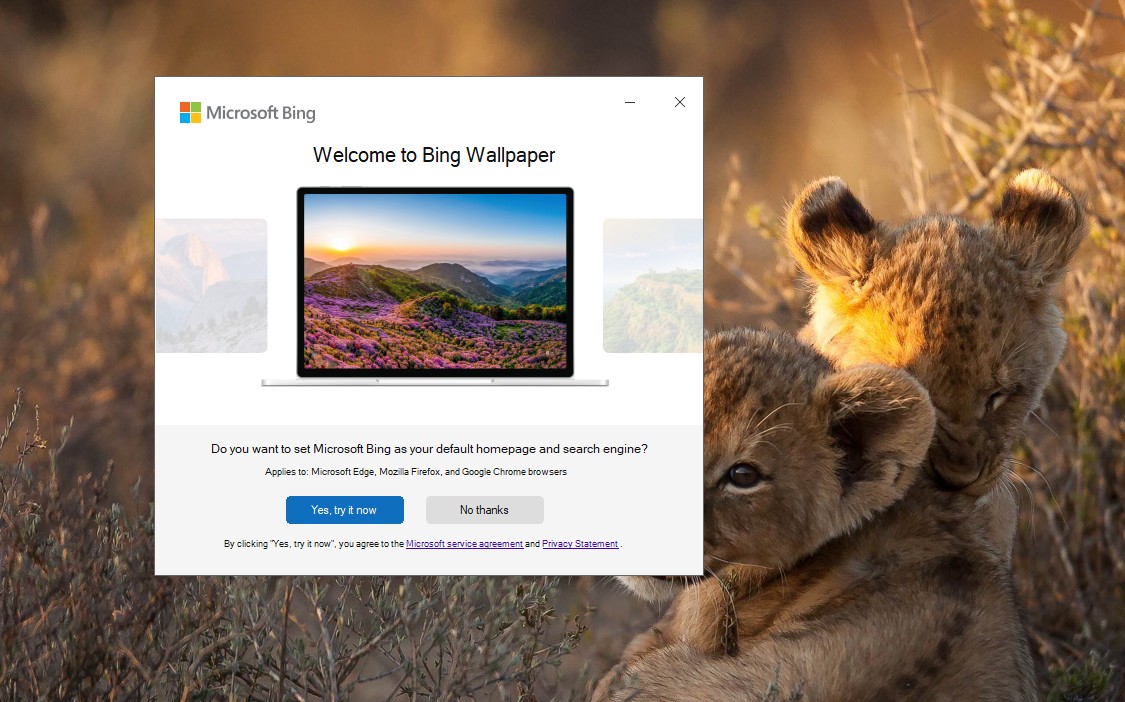
Microsoft's recently released Bing Wallpaper application for the Microsoft Store has come under scrutiny for exhibiting behavior typically associated with malware and potentially unwanted programs (PUPs).
Software engineer Rafael Rivera conducted an analysis of the application and uncovered several concerning practices. According to Rivera's investigation, the app automatically installs Bing Visual Search without user consent and attempts to modify browser settings across Edge, Firefox, and Chrome.
The app's questionable behaviors include:
- Unauthorized installation of additional software
- Prompts to change default search engine and homepage to Bing
- Code capable of accessing and decrypting browser cookies
- Geolocation tracking capabilities
- Aggressive promotion of Microsoft Edge browser
- Unsolicited browser extension recommendations
These findings have been independently verified by multiple sources, leading to recommendations against installing the application.
While the core functionality of Bing Wallpaper - changing desktop backgrounds daily - may appeal to users, several safer alternatives exist. Windows users can utilize the built-in Windows Spotlight feature, or choose from reputable third-party options like:
- Lively Wallpaper - Supporting both static and animated wallpapers
- Active Desktop Plus - Offering animated wallpaper capabilities
- DynaWin - Allowing time-based wallpaper changes
- SpaceEye - Specializing in satellite imagery
- Chameleon - Featuring weather-based wallpaper adjustments
The inclusion of malware-like features in an official Microsoft application raises serious concerns about user privacy and consent. The behavior exhibited by Bing Wallpaper would likely trigger security warnings if distributed by any other developer, highlighting a concerning double standard in software distribution practices.
Users are advised to exercise caution and consider alternative wallpaper applications until Microsoft addresses these privacy and security concerns.